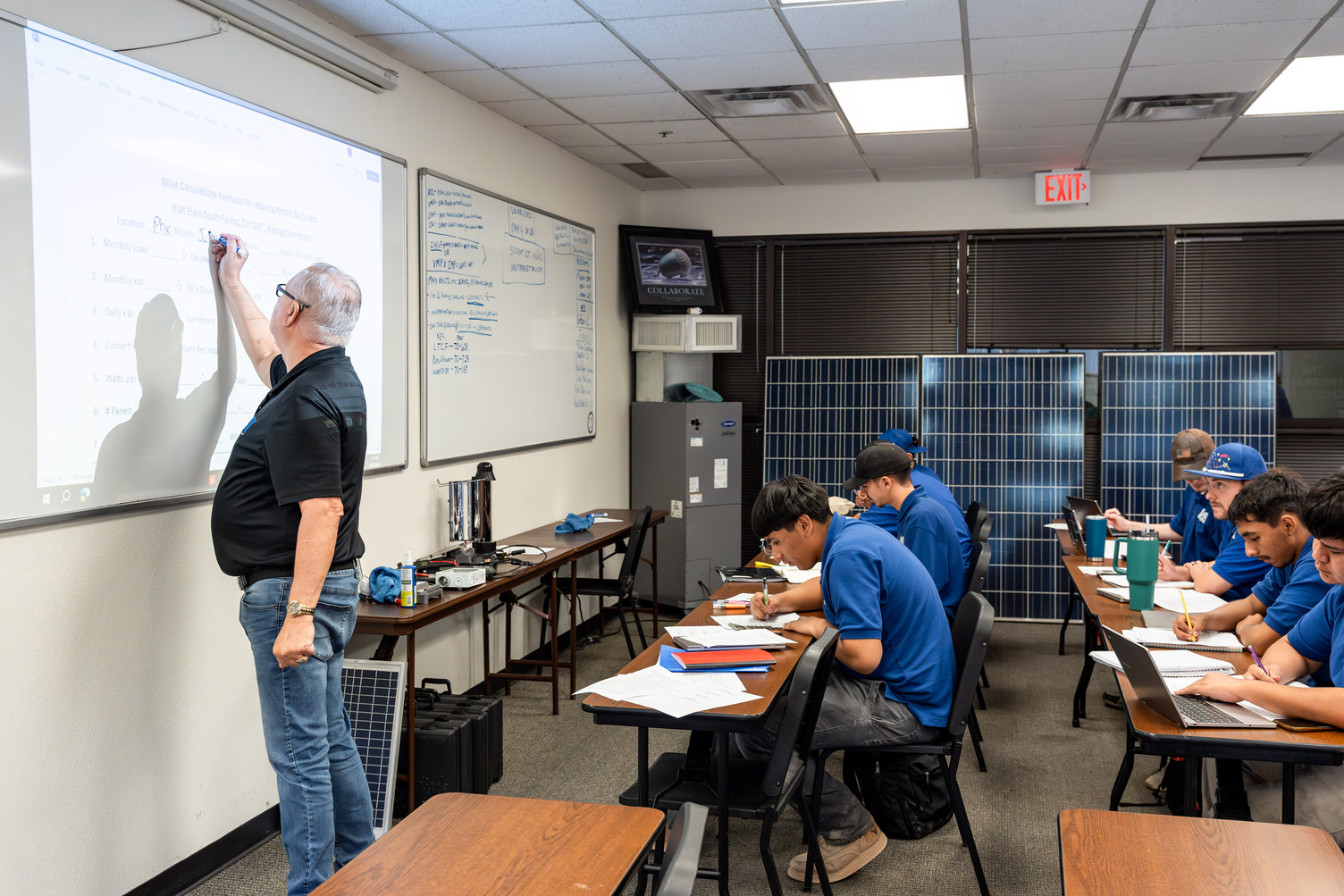RSI is a Great Training Option for Everyone
Learn more about how we can prepare you to advance your career.
Prospective HVAC technicians in Arizona often want to know what kind of financial investment training will require. While costs can vary, having a clear understanding of tuition ranges and what’s included can help you choose a program that aligns with your budget and goals.
In Arizona, HVAC training programs are offered at various lengths and levels. Longer programs typically include hands-on lab work, preparation for certifications such as EPA Section 608, and coursework designed to meet employer expectations. Shorter courses may cost less but often cover fewer topics and provide limited access to equipment and instructor support.
Whether you’re comparing programs statewide or narrowing your search to Phoenix, reviewing tuition, course content, and support services can help you make an informed decision.
The Average HVAC Tuition in Arizona
Full-length HVAC programs in Arizona can generally range from $7,000 to $15,000. These programs often include a mix of classroom learning, hands-on lab training, and support for required industry certifications. Some schools also provide job placement assistance or access to professional tools and materials, which can affect the total cost.
Shorter, introductory or specialized training courses typically cost between $1,000 and $3,000. These are designed for students who may already have some experience in the field or who want to explore HVAC fundamentals before committing to a longer program. However, shorter programs may not offer the same depth of training or access to certifications as full-length options.
Get Started on the Path to a New Career
Fill out our form to learn how we can help you change your life.
Students are encouraged to ask whether tuition includes materials, tools, and exam fees when comparing schools. These factors can add to the overall expense and are important to consider when budgeting for training.
HVAC Training in Phoenix
Phoenix offers a range of HVAC training programs for comprehensive, in-person instruction. Programs at schools like The Refrigeration School (RSI) offer HVAC industry-aligned curriculum with an emphasis on hands-on practice and career readiness.
Shorter programs in Phoenix may offer quicker entry into the field, but they may not include the full scope of training or certifications that employers often prefer. Higher-cost programs typically include instruction in commercial refrigeration, energy-efficient technologies, and advanced system troubleshooting.
For students focused on long-term career development, enrolling in a program that includes extensive hands-on training and access to certification exams can be a worthwhile investment.
Online vs. In-Person Training Costs
Online HVAC programs tend to be more affordable, with costs typically ranging from $500 to $3,000. These self-paced programs are convenient for students balancing other commitments, and they can be a good starting point for learning basic concepts and theories.
However, HVAC work is hands-on by nature, and online training has limits. Practical skills—like safely handling tools, troubleshooting live systems, and working under pressure—are difficult to learn without in-person instruction.
In-person training programs, such as those offered in Phoenix, allow students to gain direct experience with HVAC systems. These programs often cost between $10,000 and $18,000, but they provide access to modern tools, professional instructors, and structured lab environments. Employers often favor candidates with this kind of well-rounded preparation.
Financial Aid and Payment Options
Arizona students have several financial aid options to help offset the cost of HVAC training. Many trade schools participate in federal and state aid programs, making education more accessible.
Common forms of financial assistance include:
- Federal Financial Aid: Eligible students may qualify for financial aid in the form of unsubsidized loans, subsidized loans, or federal work-study programs.
- Scholarships: Some trade schools, such as RSI, may offer scholarships specifically for students in skilled trades, including HVAC.
- Veteran Education Benefits: Students with military experience may be able to use the GI Bill® or state-based veteran funding to cover tuition.
- Payment Plans: Many schools offer tuition payment plans to help spread out costs over time.
- Workforce Development Grants: State-funded programs may offer financial support for students entering high-demand fields like HVAC.
RSI offers access to financial aid for those who qualify, and students are encouraged to complete the FAFSA and speak with a financial aid advisor early in the enrollment process.
Want to Learn More?
HVAC training in Arizona can be a step toward a long-term, stable career. While tuition varies depending on the program and location, students have access to a range of financial aid options and flexible training formats.
Programs like the Refrigeration Technologies training at RSI in Phoenix are designed to prepare students for entry-level roles in the HVAC field. With hands-on training, certification preparation, and career services support, RSI helps students develop the skills and confidence needed to succeed.
To learn more about tuition, program schedules, or financial aid, contact RSI or call 1-855-935-0486.




